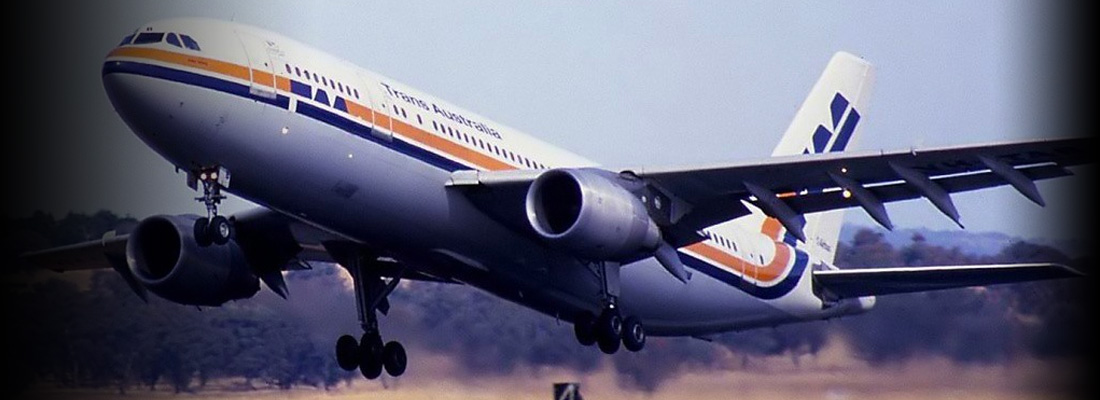

| PREVIOUS | HOME | NEXT |
Ex-TAA workers lose super appeal By John Reynolds, KT Journalism Two former Trans Australian Airlines (TAA) employees denied access to the Commonwealth Superannuation Scheme (CSS) in the 1970s have been refused damages despite two courts finding TAA had discouraged employees joining CSS. The Federal Court and the Full Federal Court found TAA deliberately frustrated employee attempts to join CSS for the then-Commonwealth-owned airline's own financial benefit and to "create a level playing field" with then-rival Ansett Airlines. TAA's actions from 1974, when it discouraged workers joining CSS, to 1981, when it prohibited them joining, were described by Federal Court Justice Robert Buchanan as odious and had caused "significant" financial loss to potential members. But neither he nor judges in the subsequent appeal to the Full Federal Court found TAA's actions negligent or a breach of its duty of care to employees Malcolm James Innes and Stuart Arthur Hunter because they were not obliged to accept TAA's advice. Mr Innes and Mr Hunter sued TAA's now-owner AAL Aviation Ltd for damages in separate claims, arguing they had been financially harmed. They argued negligent misstatement, negligence, misleading or deceptive conduct, unconscionable conduct, breach of their contracts of employment and deceit. The Federal Court heard both cases together because of their similarities. The court heard both men had worked for TAA in the 1970s and had asked to join CSS within six months of their employment. Both were wrongly told no fund positions were available; joining was invitation only; and they "had to wait their turn". Neither had been invited to join before TAA left CSS in 1981. AAL argued Mr Innes and Mr Hunter's senior managers were aware of CSS requirements and often provided informal advice but were not responsible for CSS advice. The men should have approached more relevant managers and neither had expressed a desire to join CSS after being told no positions were available, AAL said. On 17 February 2016, Justice Buchanan found TAA "deliberately obstructed, frustrated and prevented employees entering [CSS] to save money". "I see no way to excuse what happened. However, a lack of excuse for exploitative, and perhaps even odious, conduct does not equate to legal causes of action for individuals even where, as here, they assert that the prejudice suffered by them was financially very substantial." He said the men had other options to enter CSS and could not establish "the requisite degree of knowledge or appreciation on the part of [the managers] they claim forestalled their entry into" the fund. He said it was significant neither man took the "basic and most obvious step" of seeking information from TAA's personnel office or formally applying direct to CSS. Justice Buchanan also found TAA's managers could not have known the men would have acted on the initial advice. Mr Innes's and Mr Hunter's appeal argued Justice Buchanan had erred when he found they did not actively pursue CSS membership or should have known the initial advice was wrong. They also argued Justice Buchanan erred when he said, had he been required to assess damages, he would have found both men had failed to mitigate their losses by not entering into CSS before 30 June 1981. In a joint 12 December 2017 judgement, Full Federal Court Justices Richard Tracey and Richard White dismissed the appeal. Concentrating on Mr Innes's case, due to Mr Hunter's death since the first hearing, they agreed both men could have sought alternative advice or referred to CSS legislation to clarify membership requirements. "In the days before the internet and information technology, locating the [Commonwealth Superannuation] Act may have required more than usual persistence but we think it proper to conclude the Act was as available to employees of TAA as it was to TAA itself," the judges said. "There was no suggestion TAA had taken steps to preclude Mr Innes from accessing the legislation." Justices Tracey and White said Mr Innes should have used several options open to him to confirm TAA's advice. He could have inquired with the Superannuation Commissioner; sought Federated Clerks' Union advice in his position as a delegate; or sought other professional assistance. "This is not a case in which it may be said that TAA was one of a limited number of custodians of the relevant information," they said. "We appreciate it may have been natural for Mr Innes to have looked to his employer for advice and information but that does not suffice to have placed him in a position of vulnerability." Justice Mordecai Bromberg also dismissed the appeal but disagreed Mr Innes and Mr Hunter should have known not to accept their managers' initial advice. He said the managers should have known the men would act on their advice. "That Mr Innes kept coming back with the same inquiry, and continued to wait for a place in CSS, must have or ought to have confirmed [Mr Innes] regarded [TAA's] advice as authoritative and would rely on it in the future as he had done in the past." Innes v AAL Aviation Ltd [2017], FCAFC 202, 12/12/2017 |
Resolve is the official publication of the Australian Insurance Law Association and
the New Zealand Insurance Law Association.

